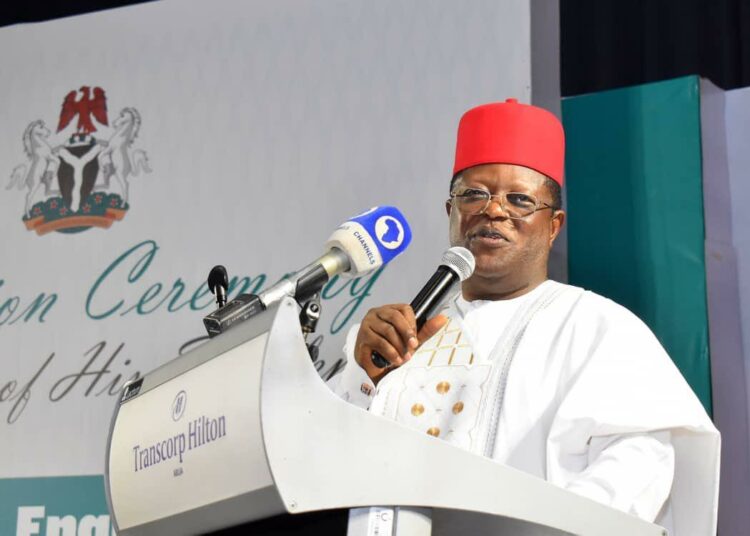FG has dumped Lagos-Calabar Coastal Road Project Realignment after destroying Landmark and other multimillion dollars businesses/beachfronts.
NewsOnline Nigeria reports that the Federal Government has scrapped plans to realign the Lagos-Calabar Coastal Highway, citing the presence of submarine cables and potential risks to Nigeria’s internet connectivity and telecommunication infrastructure.
This Nigeria news platform understands that the announcement was made at the 3rd Stakeholders Meeting in Lagos, where the Minister of Works, Dave Umahi, confirmed that the proposed diversion would no longer occur, citing potential risks to the country’s internet connectivity and telecommunication infrastructure.
ALSO: Governor Yusuf Officially Reappoints Sanusi As Emir of Kano
Umahi revealed that the Environmental Impact Assessment (EIA) for the project would not be available for now, invoking Section 15 (b) of the Freedom of Information Act to justify withholding certain information from the press and public. The cited section allows government institutions to deny access to third-party information.
The decision to halt the realignment plans comes after telecommunication companies warned the government of the possibility of network outages in the country if the diversion were to proceed. The proposed realignment route would have affected the submarine cables that are crucial for maintaining internet connectivity and global data transmission.
In a video shared by journalist Laila Johnson-Salami, members of the Okun-Ajah community, which would have been impacted by the realignment, were seen praising the Tinubu-led administration for its decision to abandon the plan. The proposed route had previously led to the demolition of ancestral homes in the community and several private businesses, including the landmark beach resort.
The Federal Government’s decision has sparked a range of reactions from Nigerians across various platforms. While some applauded the move as a necessary step to protect critical telecommunications infrastructure, others criticized the government for failing to conduct proper assessments and feasibility studies before embarking on the demolition of private properties.
Critics argue that the government’s actions have already caused significant harm to businesses and individuals, raising questions about accountability and the decision-making processes involved in large-scale infrastructure projects.
As the debate continues, the Federal Government is now tasked with exploring alternative routes and strategies for the Lagos-Calabar Coastal Highway project, while ensuring minimal disruption to local communities and the country’s vital telecommunications networks.














